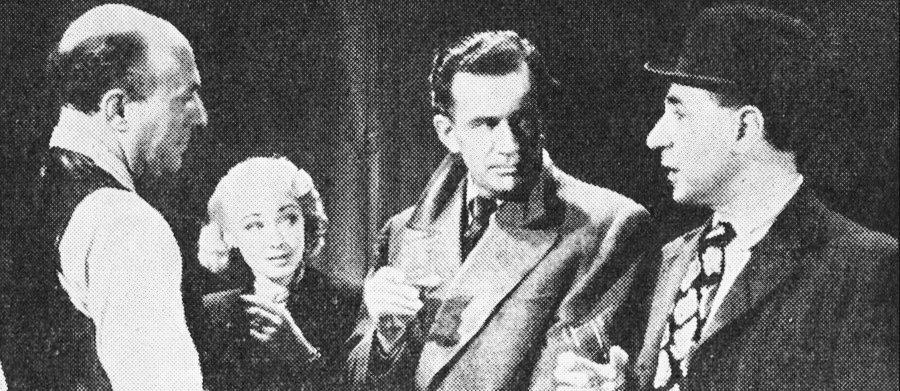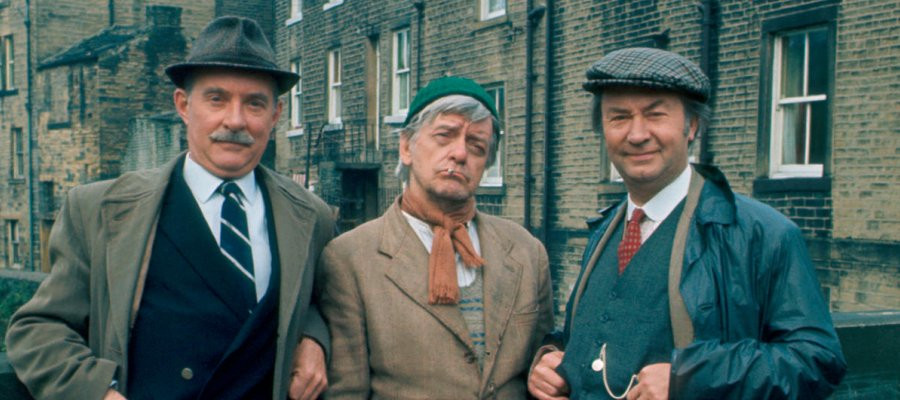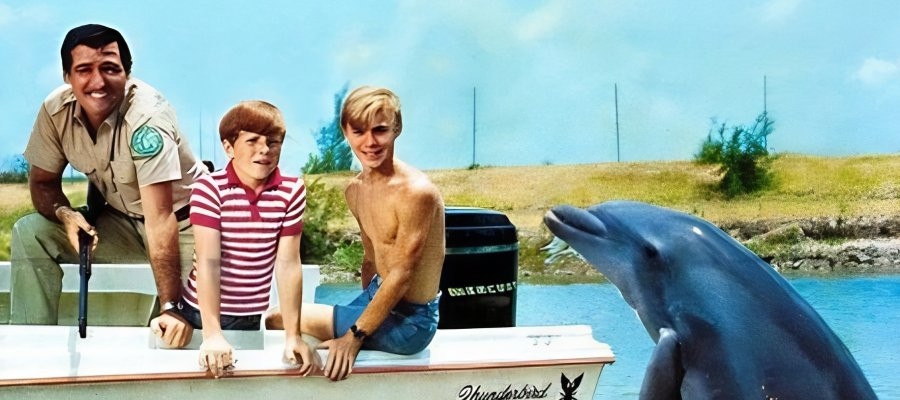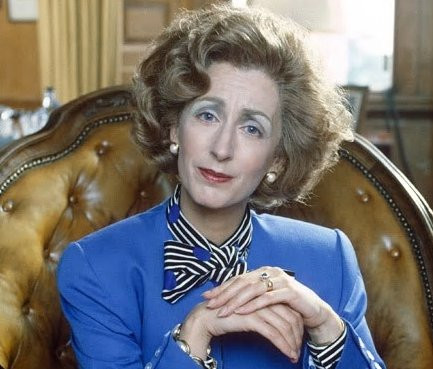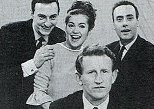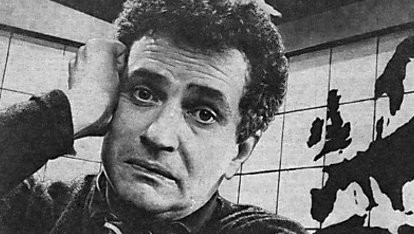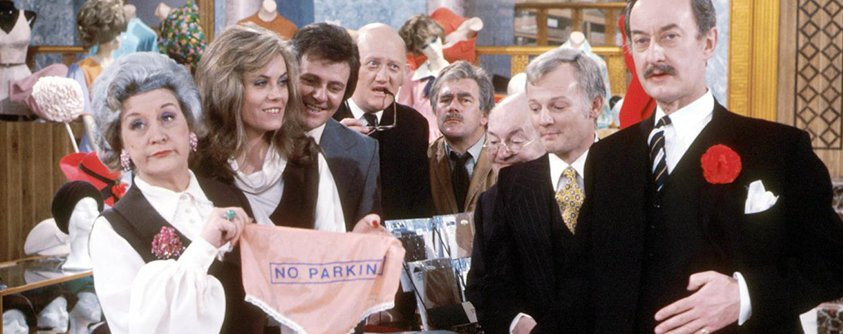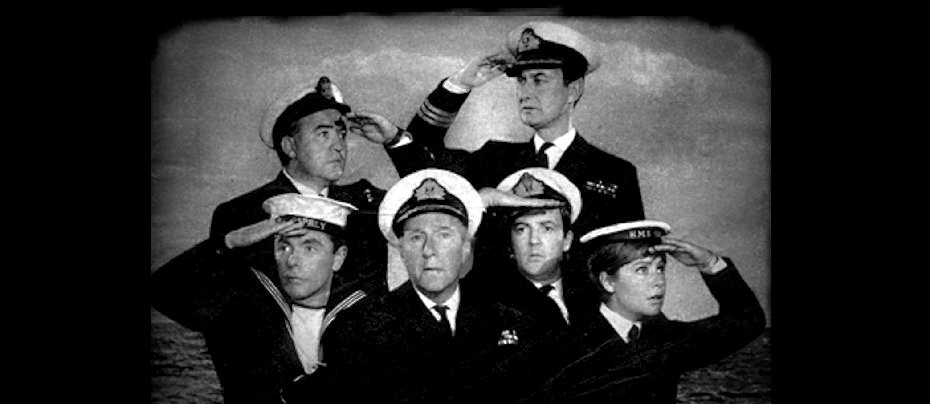
H.M.S. Paradise
1964 - United KingdomH.M.S. Paradise was shot with full support and assistance from the Royal Navy, and all ingredients seemed to be in place for success
Review by Brian Slade
The random wiping of British television shows in the 50s and 60s wasn’t exclusively the failing of the BBC – commercial television has its fair share of lost programmes. While normally people bemoan the loss of classics like Not Only, But Also…, Dad’s Army and even The Morecambe and Wise Show, there are other programmes whose initial reception was bad but that have been denied the opportunity to be judged more kindly by history in retrospect. One such show was H.M.S. Paradise, devised as a television equivalent of The Navy Lark but panned by critics as a pale shadow of the radio success.
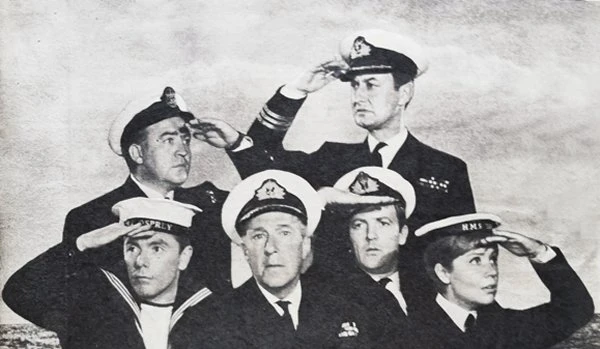
In 1964 filming began on a sitcom that not only tried to recreate the success of The Navy Lark, but it also even took one of the leading actors from that programme to try and give it a helping hand towards success. Richard Caldicot, Commander Povey in The Navy Lark, played Captain Turvey. Turvey was the onshore authority figure frustrated by the goings on at the Naval base on Boonsey Island, a fictitious location off the Dorset coast near Portland. Boonsey carries the nickname of HMS Paradise for being seen as a soft touch, a base where its residents are allowed to run all kinds of dubious schemes. Life there is reportedly, ‘a haven for fiddlers and work-dodgers.’ Povey, not so kindly nicknamed Old Thunderguts, is frustrated at the apparent lackadaisical approach to life in the forces adopted by all based on the island.

In charge, barely, of the incumbents of the base is Commander Fairweather (Frank Thornton). His rank is not backed up by his actions as he prefers to stick to fishing and keeping out of the many questionable activities going on around him. Ignorance, for him, is bliss. Unfortunately, knowing they can get away with so much merely encourages the sailors beneath Fairweather to exploit his placid nature. Chief protagonist for making Fairweather’s life more difficult is Chief Petty Office Banyard (Ronald Radd). He is the real man in charge at the base, and in a manner befitting Radar and Klinger in M*A*S*H, he is the man who can get anything…for the right deal. Banyard is aided and abetted by Able Seaman Murdoch (Angus Lennie), loyal to Banyard, but more of use as a fall guy than anything constructive.

First Lieutenant Pouter and Wren Amanda make up the remainder of the principal characters at Boonsey. Porter (Robin Hunter) is technically next in the line of command behind Fairweather, but he is a soft touch for the sailors and easily fooled by the scheming Banyard. Porter is also besotted by the ladies, with Amanda (Priscilla Morgan) the principal object of his affection.
Guest stars drop in here and there to Boonsey Island, but the core focus is the mischievous nature of the lower ranking Navy members, fooling Fairweather and his number one, and thwarting Turvey’s attempts to catch them red-handed in their scheming. The fact that Turvey can be seen coming from the mainland is a problem he never manages to master.
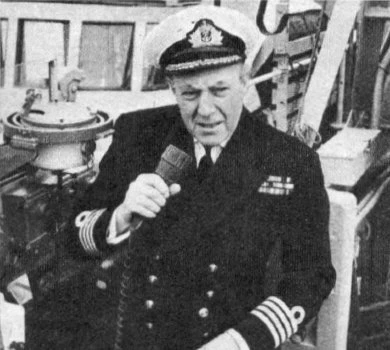
H.M.S. Paradise was shot with full support and assistance from the Royal Navy, and all ingredients seemed to be in place for success. Only eight episodes in to its originally commissioned 13, the hierarchy of Associated Rediffusion approved a further 13 episodes before any of the first eight had even aired. Perhaps if they had waited to see the reception, they might have made a different choice. Almost universally, the show was panned when it began airing in July 1964. Critics couldn’t see past the similarities with either The Navy Lark, or successful TV show The Army Game. Seen as a cheap imitation of both, only Caldicot and Thornton were saved from the savaging the press gave the programme.
Sunk without trace, a shipwreck of a show – the press seemed to have all their destructive puns pre-loaded. Indeed they seemed more amused by the situations faced with location filming near Portsmouth, among them a South African frigate starting to tie up to the ship being used for filming, and a ferry in the Solent seeing the cast seemingly adrift in a raft but choosing to completely ignore them and continue on their way. The critical slaying didn’t bother the writer, Laurie Wyman, who proclaimed that, ‘If the critics love you, usually the public doesn’t – and vice versa.’ The Navy didn’t disapprove either – the final swansong for the show was a live recording performed aboard the HMS Eagle.
Despite clawing its way into the top 20 shows of the time, there were no more episodes filmed of HMS Paradise. Given the talent of the core cast, along with such strong guest stars as Clive Dunn, Patrick Troughton, John Bluthal and Cardew Robinson, it’s a shame that it wasn’t more successful. Critics couldn’t see past the similarity with The Navy Lark and its reception clearly suffered by comparison, but one can only hope that one day recordings are unearthed to see if H.M.S. Paradise was worthy of a kinder legacy than its brief stay achieved.
Related:
TV Times article - edition 30 August 1964
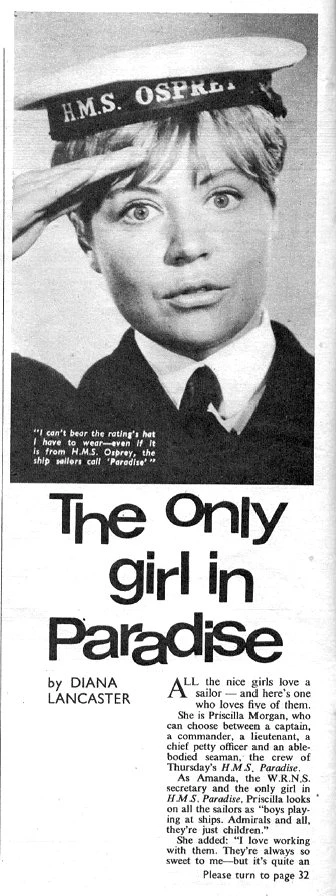
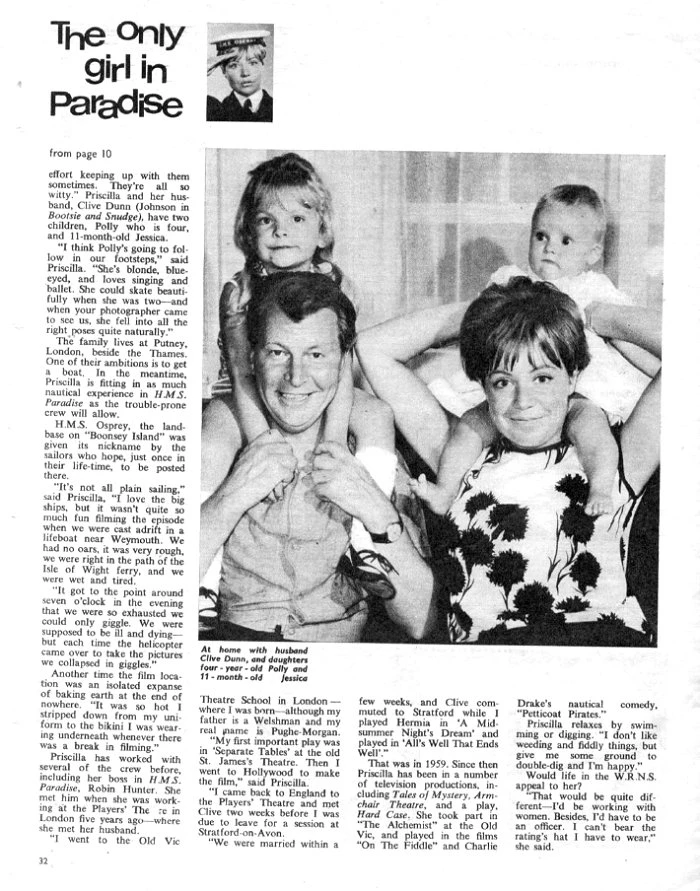
Seen this show? How do you rate it?
Seen this show? How do you rate it?
Published on July 15th, 2022. Written by Brian Slade for Television Heaven.



